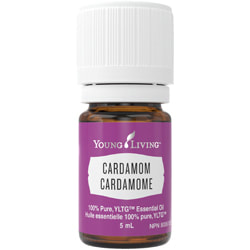What Are Essential Oils?

Poetically called the "life force" of a plant, they're aromatic volatile liquids distilled from shrubs, flowers, trees, roots, bushes, and seeds. Chemically, they're very complex, consisting of hundreds of different compounds, highly concentrated and far more potent than dried herbs. The distillation process is what makes essential oils so concentrated. It often requires an entire plant or more to produce a single drop of essential oil.
Essential oils are stored in special cells, ducts, or glandular hairs that are distributed among the roots, leaves, bark, stems, and flowers of the plant. Uplifting, protective, calming, and regenerating essential oils are a unique gift from the plant world.
Essential oils protect plants from insects and other herbivores, bacteria, molds, fungi, and other microorganisms, and help heal inflicted wounds. These unique characteristics make essential oils highly beneficial to humans.
Essential oils are different from vegetable oils, such as corn oil, peanut oil, and olive oil. Vegetable oils can become oxidized and rancid over time and are not antibacterial. Essential oils cannot go rancid and are powerful anti-microbial. They are not greasy and do not clog pores like many vegetable oils do.
A single oil may contain hundreds of constituents that has the molecular structure aligned in exactly the right manner to trigger a number of responses in the human body. Very concentrated and very powerful, a drop or two
of distilled therapeutic-grade oil produces quick and significant results.
Essential oils are stored in special cells, ducts, or glandular hairs that are distributed among the roots, leaves, bark, stems, and flowers of the plant. Uplifting, protective, calming, and regenerating essential oils are a unique gift from the plant world.
Essential oils protect plants from insects and other herbivores, bacteria, molds, fungi, and other microorganisms, and help heal inflicted wounds. These unique characteristics make essential oils highly beneficial to humans.
Essential oils are different from vegetable oils, such as corn oil, peanut oil, and olive oil. Vegetable oils can become oxidized and rancid over time and are not antibacterial. Essential oils cannot go rancid and are powerful anti-microbial. They are not greasy and do not clog pores like many vegetable oils do.
A single oil may contain hundreds of constituents that has the molecular structure aligned in exactly the right manner to trigger a number of responses in the human body. Very concentrated and very powerful, a drop or two
of distilled therapeutic-grade oil produces quick and significant results.
